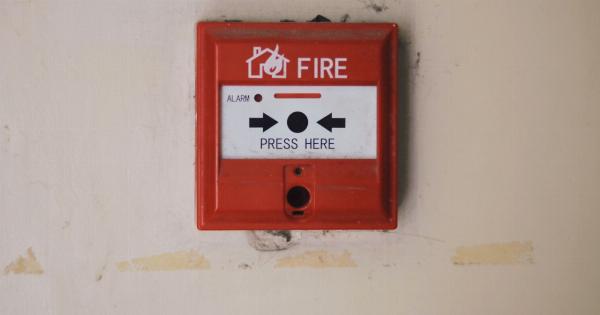In moments of medical uncertainty, it can be challenging to determine whether a condition or symptom warrants a trip to the emergency room.
The emergency room is designed to provide immediate care for potentially life-threatening situations, accidents, and severe ailments that require urgent attention. While some situations call for a visit to an urgent care clinic or a phone call to your primary care physician, there are clear indications that an emergency room visit is imperative.
Recognizing these indications can be critical in ensuring timely care and potentially saving lives. In this article, we will discuss five indications that should prompt you to head straight to the emergency room.
1. Severe Chest Pain or Difficulty Breathing
Sudden and severe chest pain is a classic indication that something may be critically wrong and requires immediate medical attention. Chest pain can be a symptom of a heart attack, a pulmonary embolism, or various other life-threatening conditions.
It is crucial not to ignore or underestimate severe chest pain and seek immediate medical attention at the emergency room. Similarly, experiencing sudden difficulty breathing, accompanied by chest tightness, rapid breathing, or bluish lips, can indicate a severe respiratory problem, such as a collapsed lung or a severe asthma attack.
These symptoms should never be taken lightly and warrant an emergency room visit.
2. Profuse Bleeding That Doesn’t Stop
When faced with a situation where bleeding is excessive, uncontrollable, or fails to stop despite applying pressure, it is crucial to seek immediate medical attention at the emergency room.
Profuse bleeding can result from severe trauma, deep lacerations, or internal injuries. Delaying or failing to address such bleeding can result in severe blood loss, shock, or even death. If you or someone near you experiences heavy or relentless bleeding, do not wait and rush to the emergency room without delay.
3. Signs of Stroke
Stroke is a medical emergency that requires immediate treatment to prevent severe brain damage. Certain symptoms indicate the possibility of a stroke.
These include sudden numbness or weakness in the face, arm, or leg (specifically on one side of the body), sudden confusion or difficulty speaking, sudden vision problems, severe dizziness, or a sudden severe headache. If you or someone around you exhibits these symptoms, call emergency services and make your way to the emergency room without hesitation.
4. Head Injuries with Loss of Consciousness
Head injuries can range from minor bumps to severe traumas that may result in a concussion or even life-threatening conditions such as bleeding within the brain.
Any head injury accompanied by a loss of consciousness, even if only briefly, requires immediate medical evaluation in the emergency room. Other signs that indicate a need for emergency medical attention after a head injury include seizures, lasting confusion, repeated vomiting, severe headache, unequal pupil size, slurred speech, or weakness in the limbs.
It is imperative not to ignore or downplay head injuries, particularly when they are accompanied by alarming symptoms.
5. Suicidal Thoughts or Self-Harm
If you or someone you know is experiencing suicidal thoughts or displaying self-harming behaviors, seeking immediate help at the emergency room is crucial.
Mental health emergencies require prompt intervention to ensure the safety and well-being of the individual involved. Emergency room staff are equipped to handle such situations and can provide appropriate care and support.
If you feel that you are in immediate danger of harming yourself or someone else, reaching out to the emergency room or calling emergency services should be your first step.
While these are five clear indications that an emergency room visit is imperative, it is essential to stress that if you are unsure or concerned about any condition or symptom, it is always best to err on the side of caution and seek medical advice.
In situations where immediate medical attention may not be required, you can reach out to your primary care physician, an urgent care clinic, or a nurse helpline to discuss your concerns. Ultimately, prioritizing your health and seeking timely care whenever needed is paramount. Remember, it is always better to be safe than sorry when it comes to your well-being.































